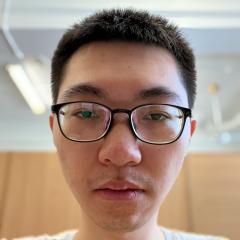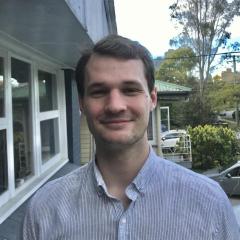Vukovic Group - Neuroimmunology and cognition
Dr Vukovic is a neuroimmunologist whose groundbreaking research explores the intricate relationship between brain function and the immune system. Her laboratory is renowned for its innovative investigations into microglia, the brain's primary resident immune cells. The focus of her work is on how these cells, along with various peripheral immune populations, influence learning and memory in mouse models. Dr. Vukovic aims to uncover the contributions of immune cells to higher cognitive tasks, particularly within the context of neuroinflammatory conditions such as acquired brain injury due to trauma, stroke, and infection, as well as neurodegenerative diseases and the aging process. Through her innovative research, Dr. Vukovic seeks to connect cellular and molecular events to behavioral outcomes, ultimately striving to harness the brain’s intrinsic regenerative potential to optimize cognitive function. Her work not only advances our understanding of neuroimmunology but also holds promise for therapeutic strategies to combat cognitive deficits associated with a range of neurological conditions.
Dr Vukovic received her PhD in 2008 from The University of Western Australia, where she focused on the role of glia in the repair of injured nerve cells. She joined the Queensland Brain Institute at The University of Queensland in 2009 to work under Professor Perry Bartlett before being awarded a Queensland Government Smart Futures Fellowship. This fellowship allowed her to continue her research into the importance of adult neurogenesis for behavior and the influence of microglia on this process as it relates to aging. In 2015, Dr Vukovic was awarded an ARC DECRA, which she held from 2015 to 2018, and she was jointly appointed as a group leader by the University of Queensland’s School of Biomedical Sciences (Faculty of Medicine) and the Queensland Brain Institute. In 2020, she was awarded the Viertel Senior Medical Fellowship to investigate the role of microglia and inflammatory processes following brain injury. In 2024, Dr Vukovic was selected to the Australian Academy of Health and Medical Sciences (AAHMS) as an Associate Member.
Her ongoing projects address the significant challenges posed by acquired brain injury, particularly trauma and stroke, which are leading causes of ongoing disability worldwide. The consequences of such injuries include a range of adverse outcomes such as learning and memory difficulties, epilepsy, depression, and dementia. While the primary damage from an injury is irreversible, it triggers a series of secondary events that can exacerbate brain dysfunction through further nerve cell death. Dr. Vukovic’s laboratory has recently made a critical discovery regarding the prevention of these secondary events by targeting the microglia. Contrary to the common belief that microglia have a solely negative impact post-injury, her research demonstrates that they can be manipulated into a state of "repopulating microglia" that significantly aids recovery. Her research program employs advanced genetic tools to elucidate how these repopulating microglia promote repair and enhance brain function after injury. Understanding the molecular mechanisms by which repopulating microglia promote brain repair offers a critical pathway for developing therapeutic strategies to combat cognitive dysfunction.
Through her innovative research, Dr Vukovic aims to deepen our understanding of the connections between the immune system and brain function, ultimately leading to potential therapeutic interventions for cognitive impairments linked to neurological conditions.
View full list of publications on eSpace
Honours:
The following Honours projects are currently available:
Role of microglia in regulating behavioural outcomes following brain injury
We have demonstrated that microglia (brain's resident immune cells) can exert a dual and opposing influence over adult neurogenesis (the birth of new neurons) in the hippocampus under different physiological conditions, namely exercise, ageing and following brain injury. The ultimate goal of our research is to link cellular and molecular events to altered behaviour, and to harness the regenerative potential of adult neurogenesis through immunomodulation to stimulate optimal cognitive function and treat conditions associated with learning and memory deficits.
Postgraduate:
PhD scholarship available to join the Vukovic lab: https://graduate-school.uq.edu.au/project-scholarships
If you would like to make a tax deductible donation to neuroimmunology and cognition research, please contact med.advancement@uq.edu.au. Thank you for your support.
Find out more about our diverse range of research interests.









